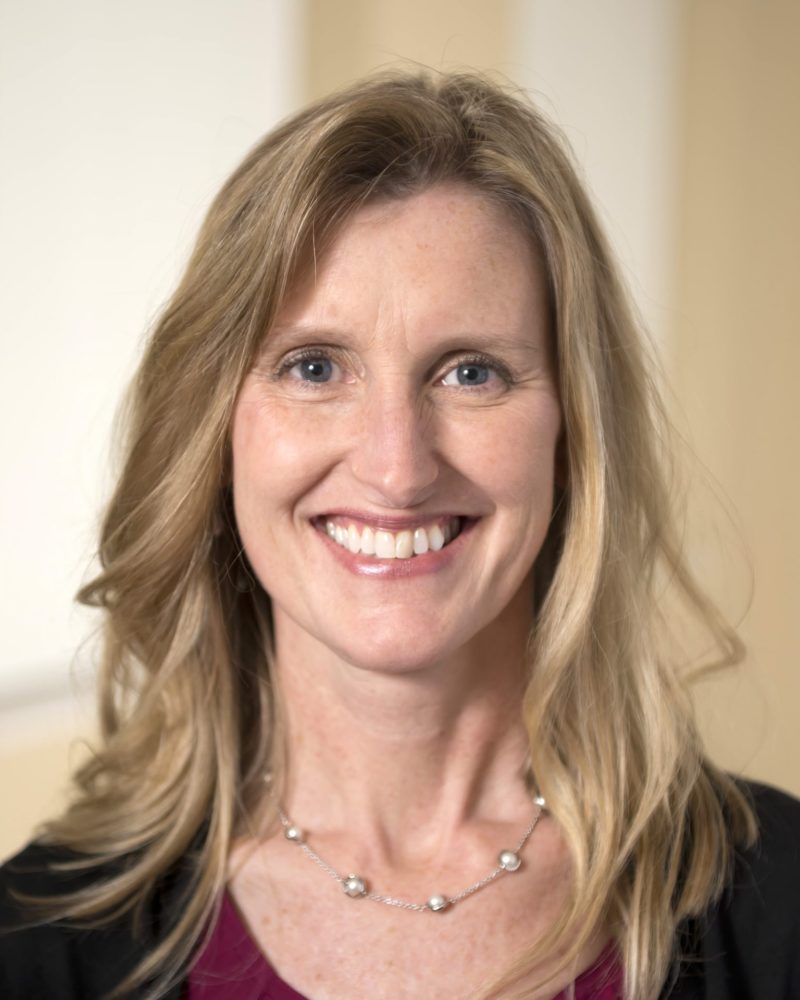In her former work as a physical therapist in an intensive care unit, Julie Ronnebaum, P.T., D.P.T., Ph.D., quickly learned how important teamwork is in health care. That’s why she pursued her doctoral degree in interprofessional health care studies and why she’s been a driving force behind interprofessional education (IPE) at DMU, where she is curriculum coordinator and associate professor in the physical therapy department.

Most recently, Dr. Ronnebaum earned a certification of completion in the mentoring program of the American Interprofessional Health Collaborative (AIHC) and the National Center for Interprofessional Practice and Education. In the year-long program, she was matched with a mentor, Joy Doll, OTD, OTR/L, FNAP, associate professor and director of the Center for Interprofessional Practice, Education and Research in the School of Pharmacy and Health Professions at Creighton University. They met monthly via video conference.
“I wanted advice and guidance on further developing and enhancing DMU’s IPE program,” Dr. Ronnebaum says. “Joy was a wonderful resource. We talked about the culture here and brainstormed on what we can do at DMU to advance collaborative learning among our students.”
Despite the great value of IPE in preparing future health care professionals, delivering it can be challenging. The intensity of health care students’ curricula can cause them to become “siloed,” and the sheer volume of what they must learn can limit time for structured IPE activities. Administrative support and other resources can be lacking or nonexistent, too.
Still, organizations such as the World Health Organization, Institute of Medicine, National Academies of Practice and the American Public Health Association support IPE for training health professionals to provide high-quality patient-centered care. Increasingly, faculty at DMU are implementing IPE activities.
“A strong focus on the AIHC mentor/mentee program is leadership. Being in the program has increased my voice for IPE leadership, whether it be at DMU or in the community,” Dr. Ronnebaum says. She now is a mentor in the program for two pharmacists. She also serves on a planning committee for the 2020 Heartland Interprofessional Conference in August. At the 2019 conference, she and Dr. Doll gave a platform presentation titled “The Magic of Mentoring in Interprofessional Education and Collaborative Practice (IPECP): Lessons Learned and Steps Forward.” In October, they gave another platform presentation, titled “Creating a Path: Mentorship in IPECP,” at the Collaborating Across Borders Conference in Indianapolis.
“I’ve learned that everybody has had struggles to effectively provide interprofessional education, but they’re very open to sharing ideas and collaborating on solutions,” Dr. Ronnebaum says.

